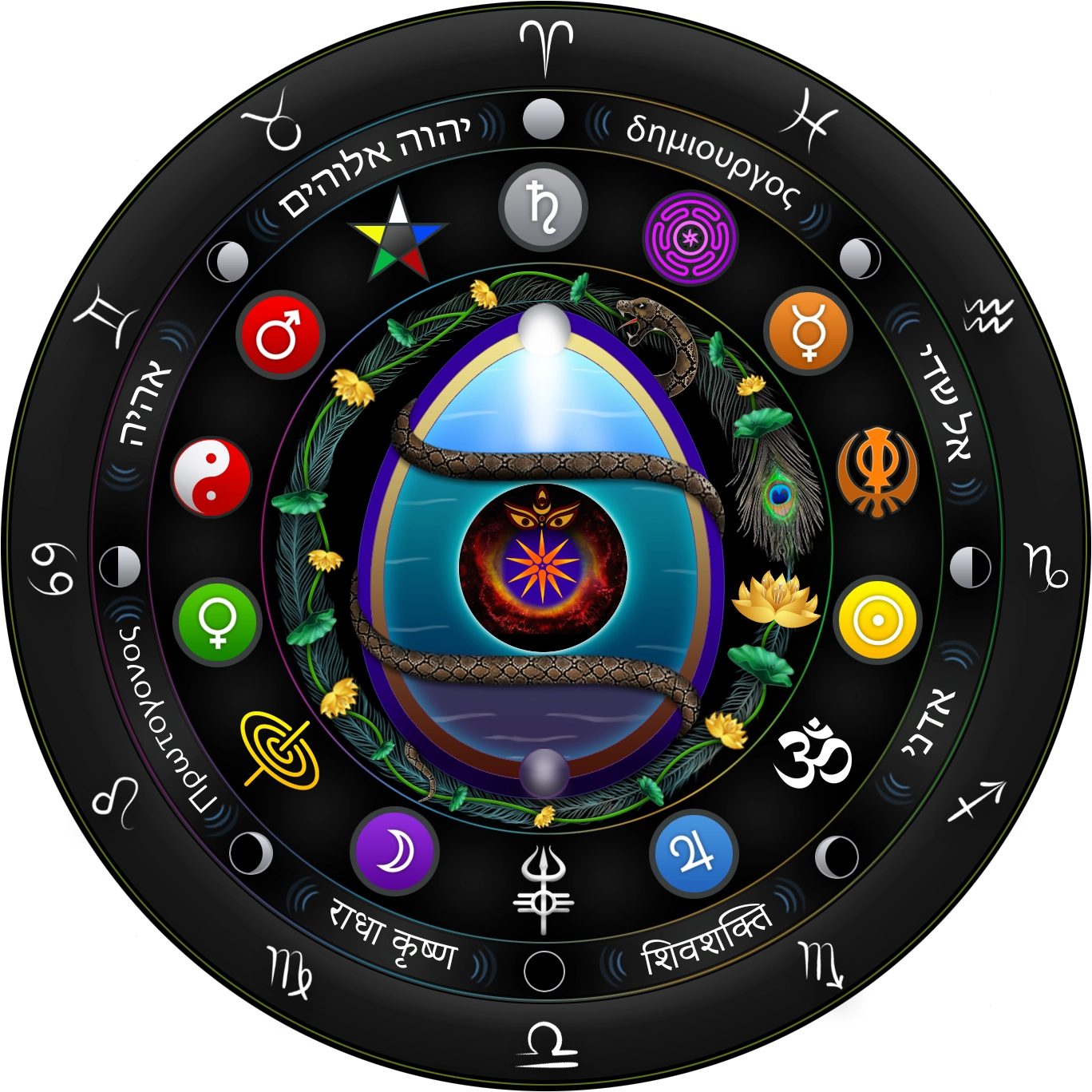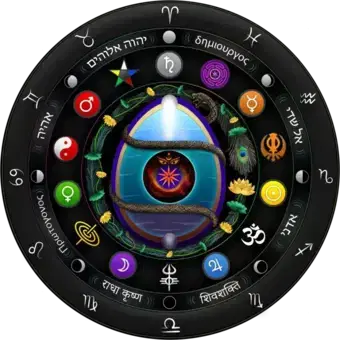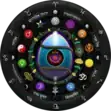SCHOOL OF OUR DIVINE
infinite being
Polytheistic Monism - Divine Theurgy - Oracle to the Gods
The Greek/Egyptian Connection: The Hellenistic Age of Alexandria Egypt: Our School’s Spirit Animal :)
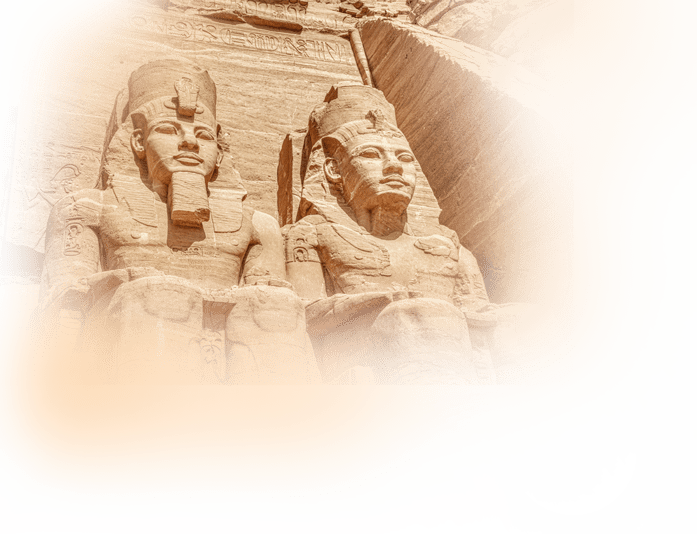
In another essay I speak about Chaldea and Babylon and their influences on Witchcraft, Theurgy and some of the root practices of our school. You can see that essay here. What I want to give exposition in this essay are the foundations of the Greek world, their relation to Egypt and Rome.
Greek origins rising from the Indo/European beginnings were deeply steeped in early proto-divinitory systems that were developed earlier than their Roman neighbors. You see this in the mystic narratives of the poets and deification of the gods and daemons of nature in their narratives over time. The development of the Euclidean Mysteries and the Orphic mystery traditions predate Plato and venerated the direct worship in Theos (Gods). When looking into the Pre-Socratic thinkers (starting 6th century BCE), there was great effort made to synchronize logic and liturgy especially when you review the Orphic narrative. This combined early philosophical discourse with Pagan myth and this continued with many of the philosophers that followed, including Plato. There was no time before where this deep syncretism occurred more across civilizations and cultures than in the bustling world of the Greek/Egyptian Ptolemaic Kingdom (305 BCE to 30 BCE). The School of Our Divine Infinite Being likes to see this time as a reflection of our own efforts here in our modern lens. We have resurrected the ancient mindset of the Alexandrian Greek/Egyptian scholar and see this process as they did at the famous Alexandrian Library.
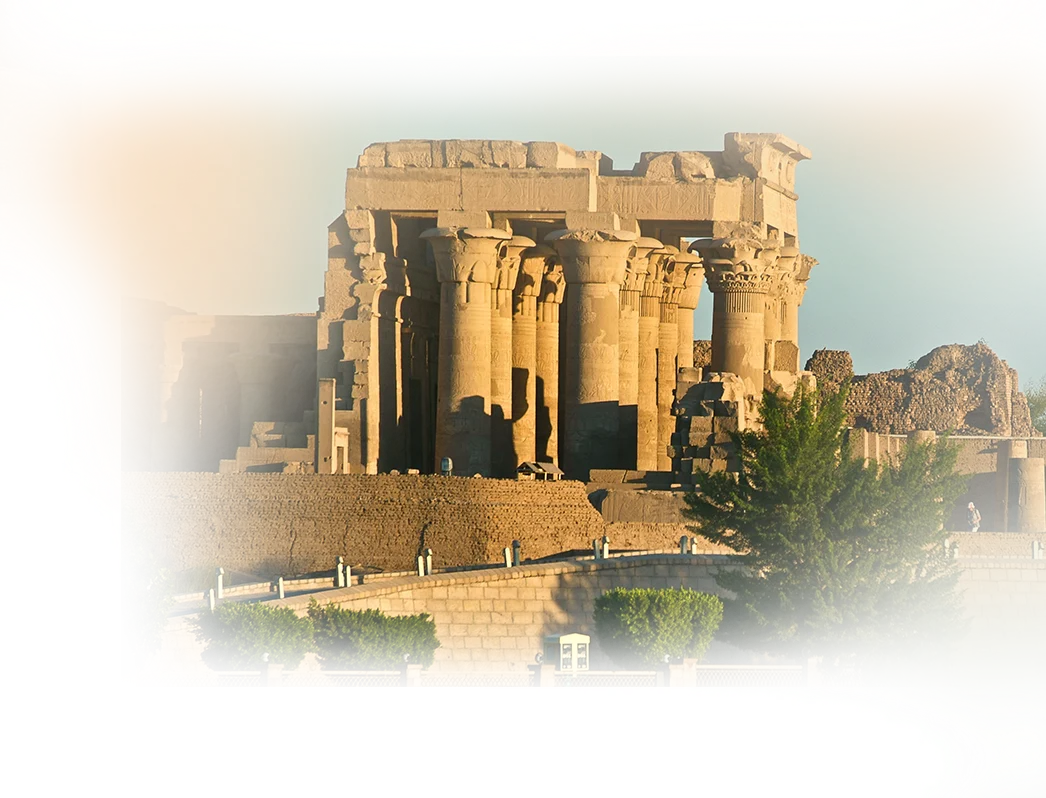
Now let's turn our thoughts to the ancient civilization of Egypt, just as the early Greeks had done in their admiration of Egyptian wisdom and practice. We want to enlighten the seeker to the relationship between these cultures reaching into the indigenous past cumulating a rare and meaningful relationship of mutual respect and religious integration that was both unique and of divine providence.
When Alexander freed the Egyptian people from the Persian empire (332 BCE) Alexander himself was named Pharaoh and a Greek ethic was born into the Egyptian civilization. Alexander prayed to the god Zeus/Ammon who already had dedications in both Greece and Egypt at the time. Alexander was considered divine as all Pharaohs before him and venerated by the Egyptian people. The Greeks had matured through Socrates, Plato (died 348 BCE) and even Aristotle, Plato’s most successful student, was counsel to Alexander the Great himself. Philosophy as a way of life was carried from Greece into Egypt, but this relationship was much older than the Hellenistic age itself.
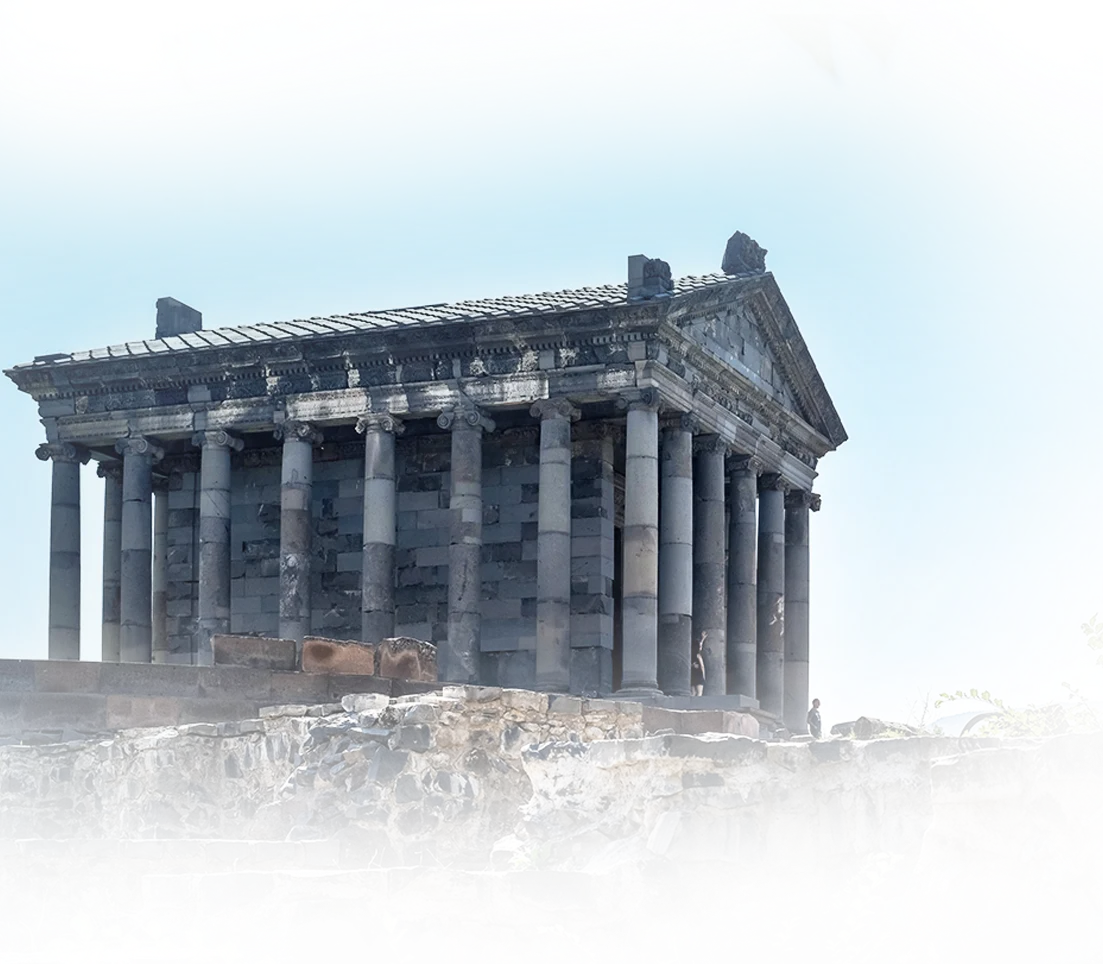
Amongst the Greeks, much as you see in the world of academics today, there were competing ideas challenging the narrative of the poets, Paganism, the Euclidean mysteries, Orphism etc. Socrates was to thank giving the world permission to question, reason and reject as a basic human right. It is simply an incorrect prejudice to say that continuing philosophical advancement “matured” beyond Pagan practices as often pointed out in biased historical literature. Today, it is popular to say “Athens vrs. Jerusalem” as if philosophy was set against the belief in a monistic God or religious ideas in general. In fact, up until the destruction of Pagan temples and the outlaw of Pagan practice from 380 CE forward the philosophies of Plato and the liturgies of Chaldea, Egypt and religious Greece found a 700-year relationship blending into a variety of Pagan and even Hebrew practices throughout the Greco/Roman world. (Philo Judaeus (15 BCE – 45 CE), was a Hellenistic Jewish philosopher who lived in Alexandria during Roman rule. He was famous for reconciling the Torah “Old Testament” with Greek Philosophical thought.)
The School of Our Divine Infinite Being is most certainly a Platonic school. Platonism, which in later developments of the school have been academically labeled as Middle Platonism and then Neo-Platonism, greatly influenced Greek, Egyptian, Hebrew, Gnostic, Hermetic and finally Christian thought. Christianity was very much a Greek religion born of Neo-Platonic / Mithraic / Theurgic principles combining the revelatory systems of the Hebrew with the writings of Jesus. This kind of cross-cultural syncretism was the result of the Geek/Egyptian epoch bleeding into the practices of the Roman world. When the Greeks conquered Egypt the melding of their Pagan practices and philosophies with that of Egyptian Mystery Religions was natural. This led to one of the most impressive works in Middle Platonism. The Hermetica, an Egyptian/Platonic set of writings and the foundations of Hellenistic Astrology were born within the mystery schools of Egypt during early Roman occupation (1 Century BCE to 2 Century CE) and were a major bridge to the foundations of the Neoplatonic schools. Why was this area so influential? It all started with the Ptolemic kingdom itself.
“From the mid third century BC, Ptolemaic Egypt was the wealthiest and most powerful of Alexander's successor states, and the leading example of Hellenistic civilization.” - From Wikipedia

The deep peering into the ancient practices of Egyptian polytheism and Hellenistic Greek cosmology and philosophy was thriving and alive in the Ptolemaic Kingdom of Egypt (305 BCE to 30 BCE). The two cultures flourished together unlike anything before or after this time in the history of the world. This was the greatest kingdom of the Greek states culminating in the new city of Alexandria on the shores of Northern Egypt and the establishment of the famous Alexandrian Library.
Not unlike the forums, conventions, university work, and private studies occurring today in Alexandria Syncretism was a central philosophy of its scholars, citizens, and priests.
Definition of Syncretism (Oxford Languages):The amalgamation or attempted amalgamation of different religions, cultures, or schools of thought.
LINGUISTICS: the merging of different inflectional varieties of a word during the development of a language.
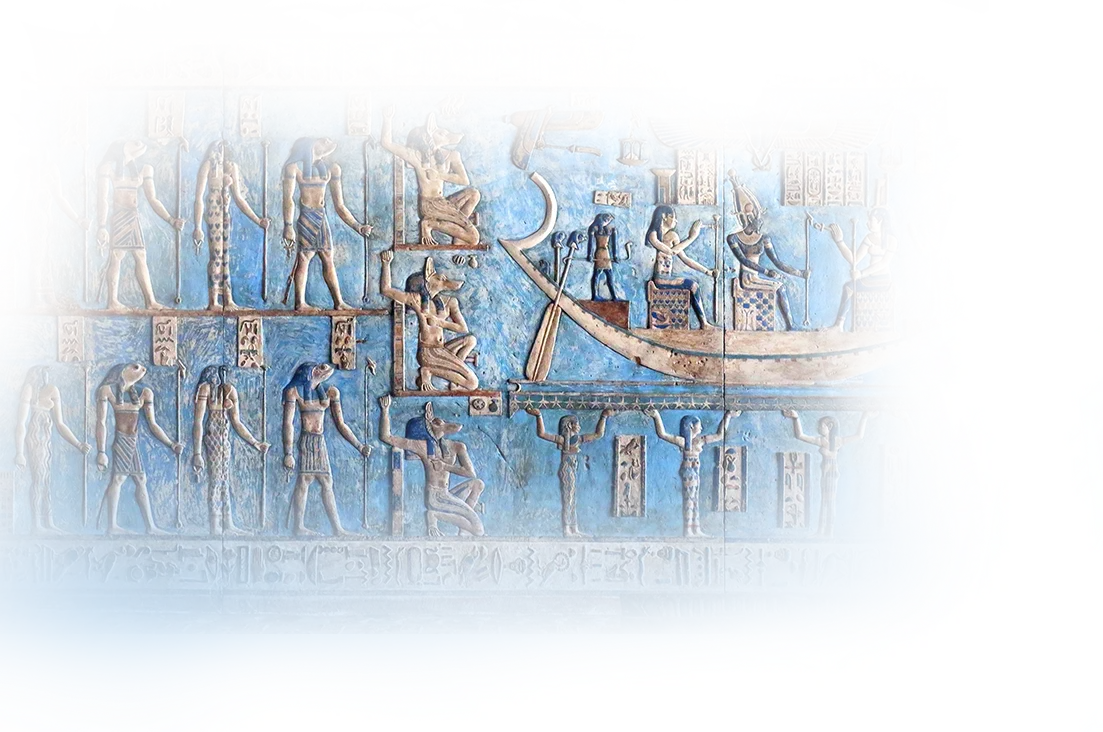
Alexandria Egypt became the intellectual and spiritual center of the entire Mediterranean world. The merging of Paganism, mathematics, cosmology, astronomy, religious practices and philosophical ideas from Greek, Babylonian, Egyptian, Hebrew and even Eastern Buddhism was practiced throughout this Greco/Egyptian Kingdom. Nowhere did this Syncretism happen more than in Alexandria Egypt. Thousands of scrolls from all over the known world were translated there into Greek. There were immeasurable budgets spent in buying these scrolls at the Alexandrian Library itself.
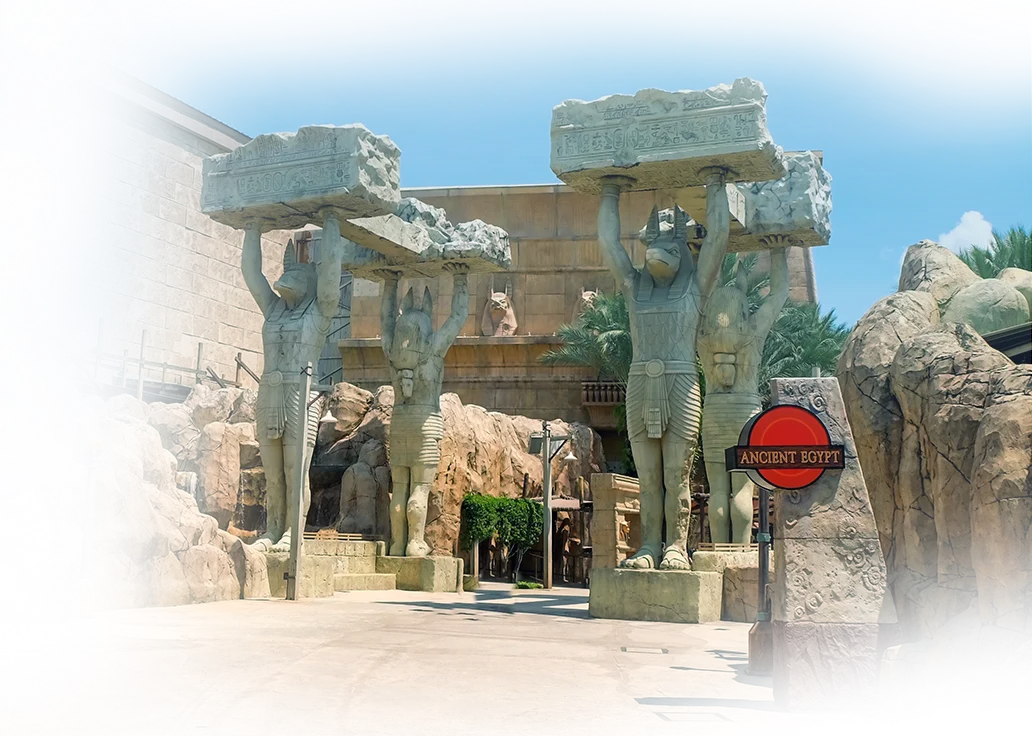
Although the linguistic definition of Syncretism is not exactly what we mean, it is very telling of this overall process. “The merging of different inflectional varieties of a word during the development of a language.” In this instance we could say the “word” is the “Logos” of Heraclitus, the transcendent factor in nature. (Later adapted by Plato, Neo-Platonism, Stoics and Christianity.) The “Logos” refers to a “rational divine intelligence” that later became the “Word” of the Christian god. I like to think of it as one Epoch of Human experience “Logos” and the “inflectional varieties” or cultures merging into the “language” of human understanding is the deep syncretism. Something we strive for in today’s more scholarly investigations was mastered in this early Alexandrian culture, but I would say, more successfully. The biggest difference is today much of this is underpinned by secular atheism and not as open as it would have been in Alexandria itself.
Egypt and Greece became one and the same place. Egypt with its gods, ancient mystery religions and indigenous magical practices merged with the philosophical schools and Pagan beliefs of the Greek World. The entire Greek Empire with its cultural diversity participated right along with them and Alexandria welcomed openly the beliefs of one culture to another. Quite a different picture from the Early Christian Epoch that would soon follow.
The Roman Empire and Hellenistic Egypt
“Roman Egypt became one of Rome's richest provinces and a center of Hellenistic culture, with Greek remaining the main language of government until the Muslim conquest in 641 AD. Alexandria would remain one of the leading cities of the Mediterranean well into the late Middle Ages.” - From Wikipedia
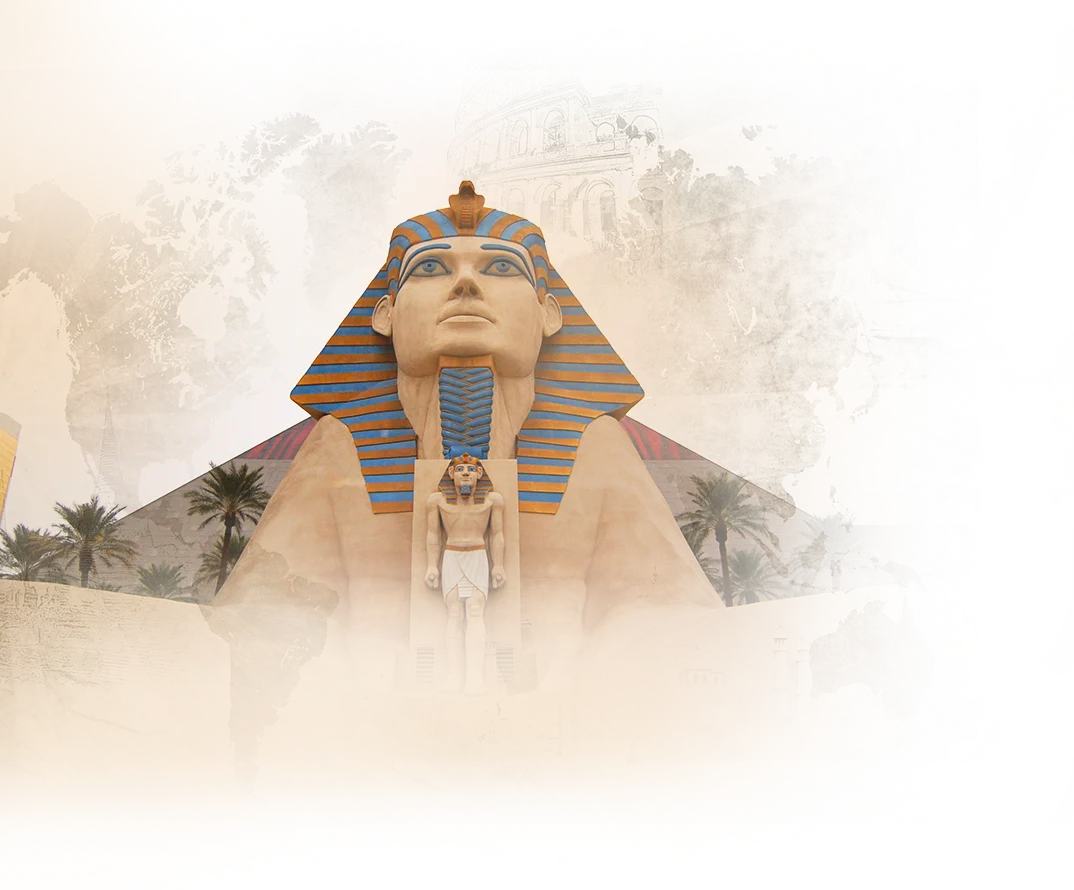
Although the Alexandrian Library was burned to the ground during the Roman conquest this melding of religious culture or Syncretism, continued well into Roman rule and was practiced throughout the Empire.
Most of us are familiar that Roman Gods are closely knit to the Pantheon of Greece. Historians agree that this began well before the Roman Empire in trade civilizations on the Italian Peninsula. It is even said that their poetics and pantheon may have developed simultaneously. This would make sense with their common ancestry in the Indo/European tribal civilizations and their close proximity. Early Greek traders in Southern Italy would trade through Roman territories with the Etruscans, a northern Italian city state that dominated the region. Roman literature, pantheon, calendar systems, customs and celebrations were adapted from both Etruscan and Greek influences. As Romans alongside Greeks developed their poetic epochs and trade relationships, Rome and Greece remained integrated civilizations. This especially after Alexander with Greece being the world superpower and Rome growing and advancing quickly to finally absorb the Etruscans, the Italian Peninsula and soon the entire Mediterranean World.
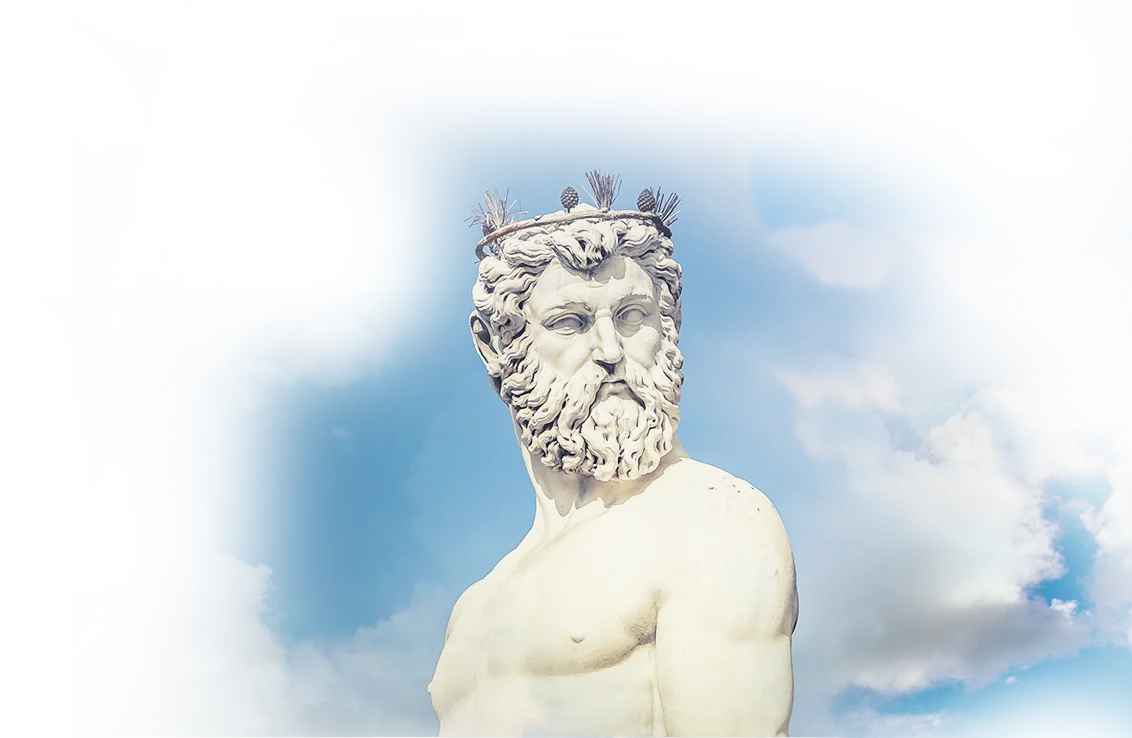
When Rome conquered Hellenistic Egypt they allowed their religious and philosophical practices to continue even integrating them further with Roman beliefs. Many Roman civilian and military leaders found the Egyptian temples to be a place to divine knowledge and as powerful as the Oracle of Delphi. The Oracle of Delphi established in 800 BCE was built and rebuilt and considered the most powerful Oracle throughout Greek and early Roman rule. (It continued operations until 393 CE when Paganism was outlawed.) Roman military leaders would travel to Egypt themselves or send emissaries with written messages to be placed on Egyptian altars to divine future events and reveal secrets. Along with the Gods of Rome and Greece, Egyptian Gods were considered powerful and sacred throughout the Empire.
The Corpus Hermeticum, an Egyptian Mystery Religion and result of a Hellenized Greek Egypt
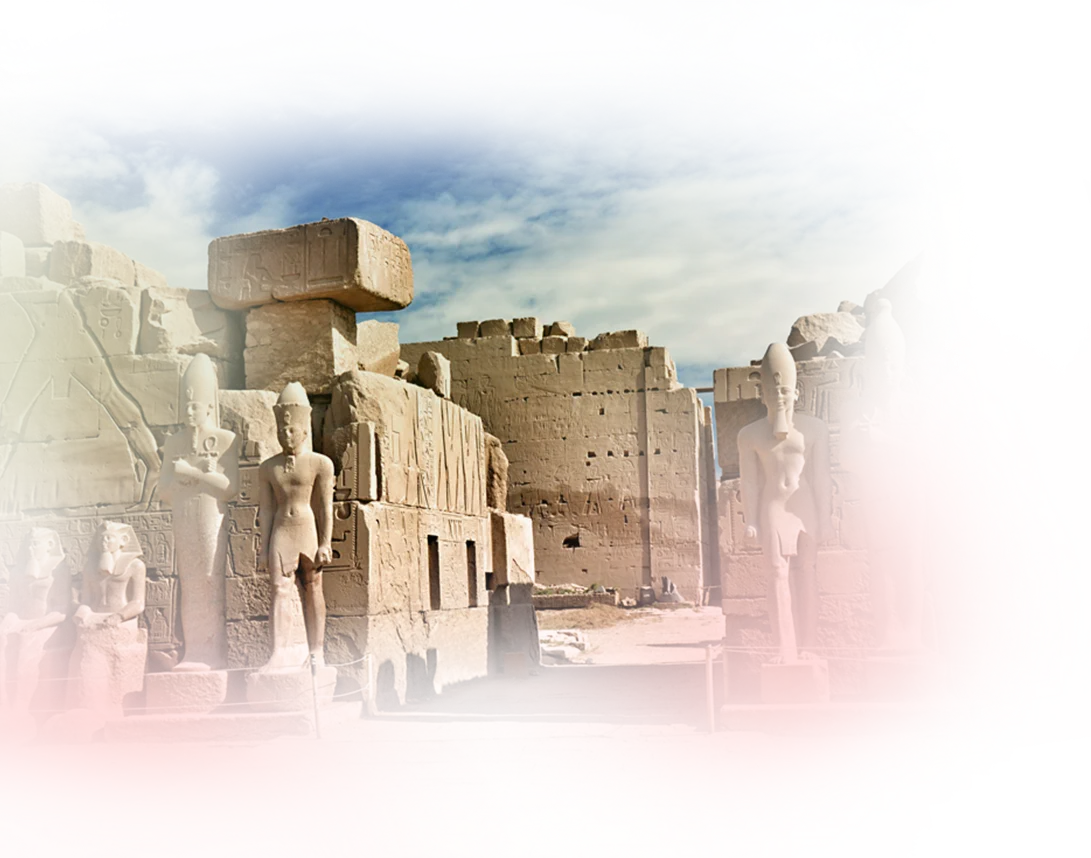
I mentioned these writings below and want to give more specifics as they are highly relevant to our school and historical Platonism in general. Some of the final major writings of the late Egyptian priesthoods can be found within the “Corpus Hermeticum”. The deep synthesis of Egyptian belief and Greek philosophical thought can be experienced through these writings. They were considered comparable to the Bible in scope and influence throughout the entire Greco/Egyptian/Early Roman epoch. Although there has been controversy concerning the authenticity and timing of these writings, this was fully clarified by scholar Christian H. Bull in his brilliant work, “The Tradition of Hermes Trismegistus” (2018 Brill). He shows plainly the authors to be an Egyptian temple priesthood operating mystery schools in early Roman Egypt. Throughout the Middle Ages and into the Renaissance period these Hermetic writings found their way into early Christian Mysticism, Alchemy and later Hermetic Qabalah.
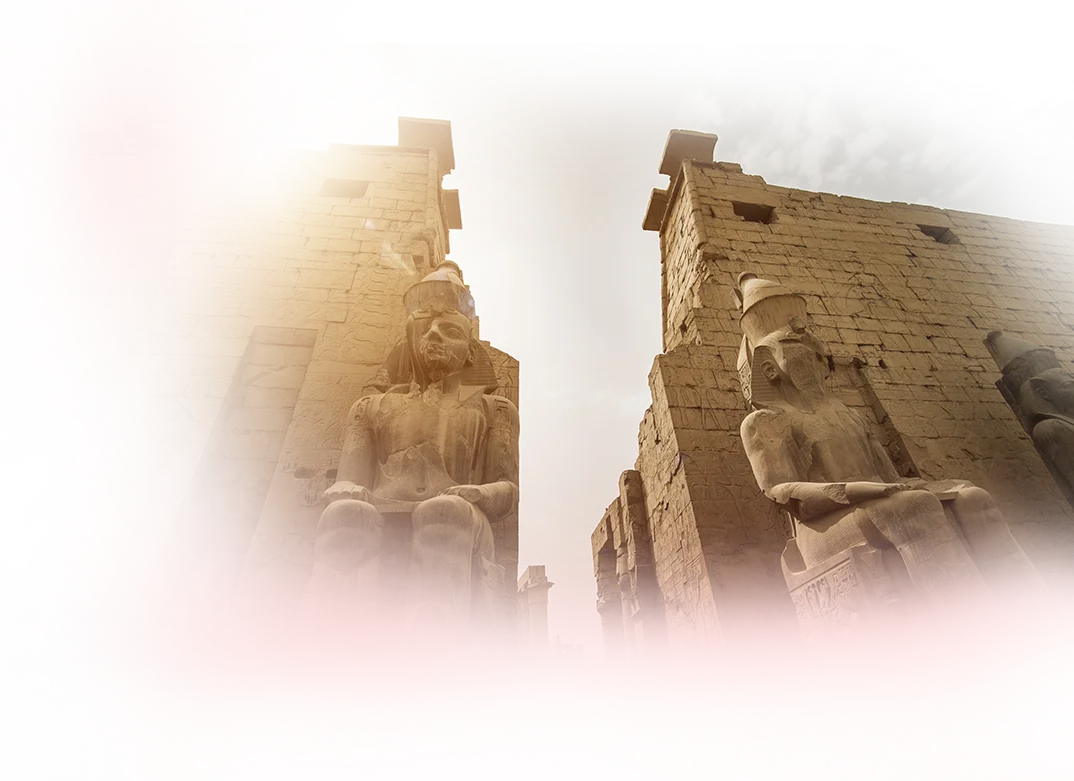
Marsilio Ficino (1433 CE – 1499 CE), famous for resurrecting the foundations of Theurgy and Platonism during the Renaissance, translated the then lost books of the Hermetica. Combining these writings, occult medicine, magic, Neoplatonism, and Christian Theology he framed the word “Hermetic” to be more strongly associated with Theurgy and the current Renaissance esoteric spirituality in general. Later developments continued to use the terminology of “Hermetic” to describe the alchemical process, astrological magic and eventually most non-Hebrew western mysteries. This Hermetic / Neoplatonic / Christian framework of ideas influenced the Archetypal creativity in the earliest forms of Tarot and further into the more advanced studies of the Golden Dawn and Thelemic schools of Theurgy . We cover this more in our Central Doctrine.
The Greek Influence in Western Civilization is the Most Dominate in all of History
Greece and Egypt remained a powerful centralized civilization under Roman rule with Greek culture eventually re-emerging under a Christian Roman flag as the center of the Mediterranean World, and the biggest world power once again.
“In 324 C.E., the ancient city of Byzantium was renamed “New Rome” and declared the new capital of the Roman Empire by Emperor Constantine the Great, after whom it was renamed…. From the mid-5th century to the early 13th century, Constantinople was the largest and wealthiest city in Europe.” - From Wikipedia:
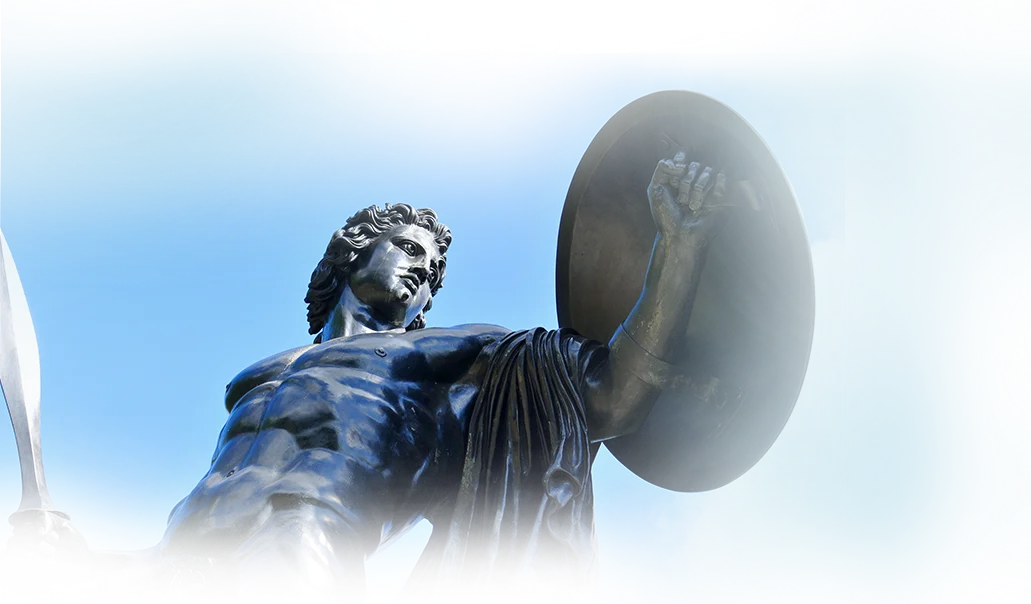
To understand how powerful Greek culture remained during the Roman era let us examine the fall of the Western Empire. In 285 CE the Roman Empire split into East and West and in 395 CE the Western Empire fell. The power in Rome was now a Greek power. Although following Roman law, they had Greek customs, language, historical scholarship, and this re-establishment of the Greek influence dominated. In 1096 CE the Clergy of Constantinople ordered the first Crusade to Jerusalem. The early Crusades were a Greek campaign of a late Roman Empire. The Byzantines as we call them (they called themselves Romans) are really the peoples of a second Greek empire lasting 1,168 years from the split of Rome to their fall to the Ottomans in 1453. It is no wonder that Greek culture from ancient times is considered the roots of our western civilization and the rock bed of our academics in science and philosophy hundreds of years later.
Hellenistic Egypt the Bridging of Two Great Civilizations. Why?
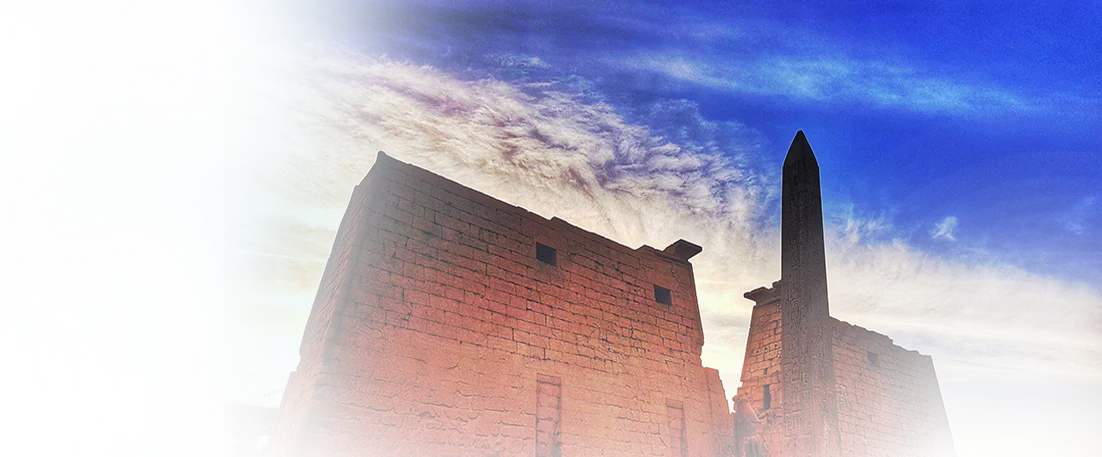
Why was the relationship of Greece to Egypt unlike any other? Why was the city of Alexandria with their Greek rulers and Egyptian priesthood the center of all learning in the ancient world? When much of today’s world looks at Egyptian culture with fascination as if foreign to us, almost alien, how would they have been so easily integrated into Greek civilization as they were? What is the most powerful culture in all western society interested in so deeply? To answer this, we must take a closer look at Egyptian influence and the Greeks attitude towards it.
The Egyptian Influence on our History and Society
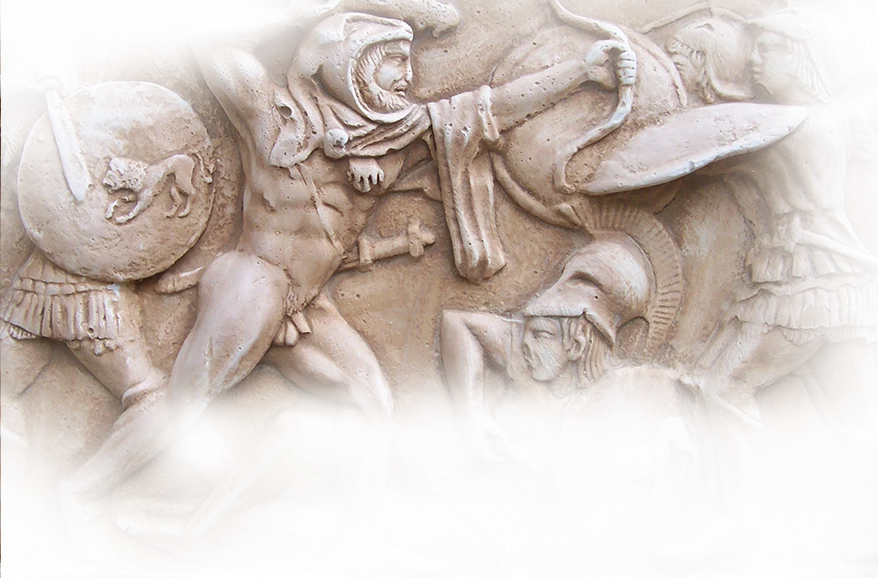
Today you can go anywhere in the world and still find ancient Egyptian art, imagery, and cultural influence. The Egyptians continue to be an enigma of the human imagination and this will never end as long as we are able to look back upon their ancient structures with reverence. In many ways they are still puzzling scientists with their seemingly impossible pyramid construction and staggering number of early world inventions. Millions of people a year travel to Egypt to see these massive structures up close and visit their temples and museums.

From the earliest decline of ancient Egyptian religious culture (380 CE) you still find occult, alchemical, and magical thinking throughout the western world influenced by the Egyptians. This became especially strong in the Italian Renaissance period and even today there are Mystery School, secret societies and new age circles that continue to adapt Egyptian art, practices, and myth. (We have no opinion concerning any specific validity or lineage of these boasted associations with Ancient Egypt. As with all other practices the School of Our Divine Infinite Being works to build a deep academic approach to understanding them, their customs, their timeline, and their beliefs. We will say only that the lack of historical accuracy and abundant Pseudo-Egyptian claims have massively distorted the true historical and mystical importance of these incredible people.)
Egypt in View of History and Worldwide Influence
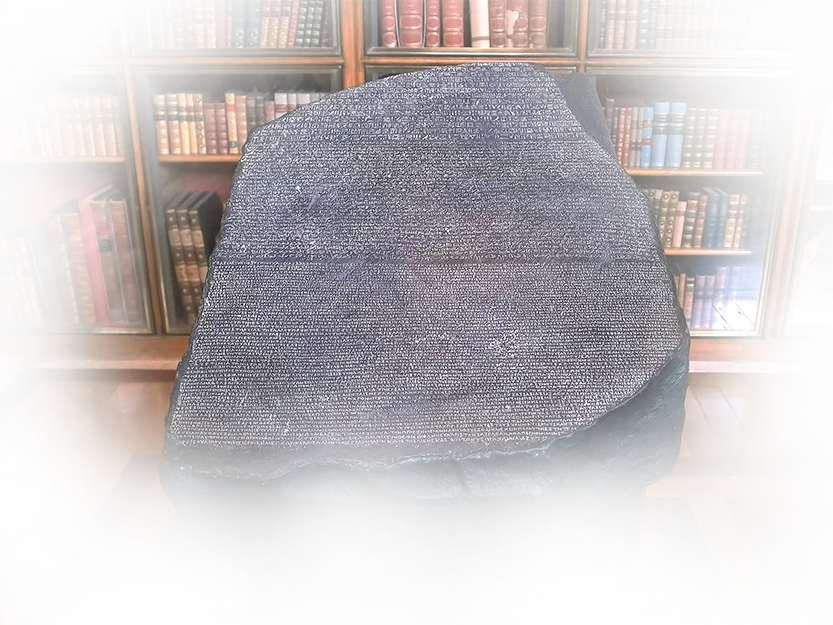
From 500 BCE until the year 1799 CE, when the Rosetta stone was found, the Egyptian hieroglyphic language remained mostly forgotten. Since that time, we have rediscovered the many things written on Egyptian temple walls, pyramids, and papyri. Even this being the case, what we have available to us is a fraction of the knowledge and history of Ancient Egypt. Throughout the ancient world they were known to protect the religious practice of their temples and Mystery School remaining very secretive. Their temples were famed to be libraries full of ancient scrolls and knowledge. The thousands of texts referenced in histories, especially amongst the Greeks, have been largely lost to the tomes of time. Even so, what we have today of the Ancient Egyptian systems of magic and belief is overwhelming evidence of their advanced wisdom and mystical power.
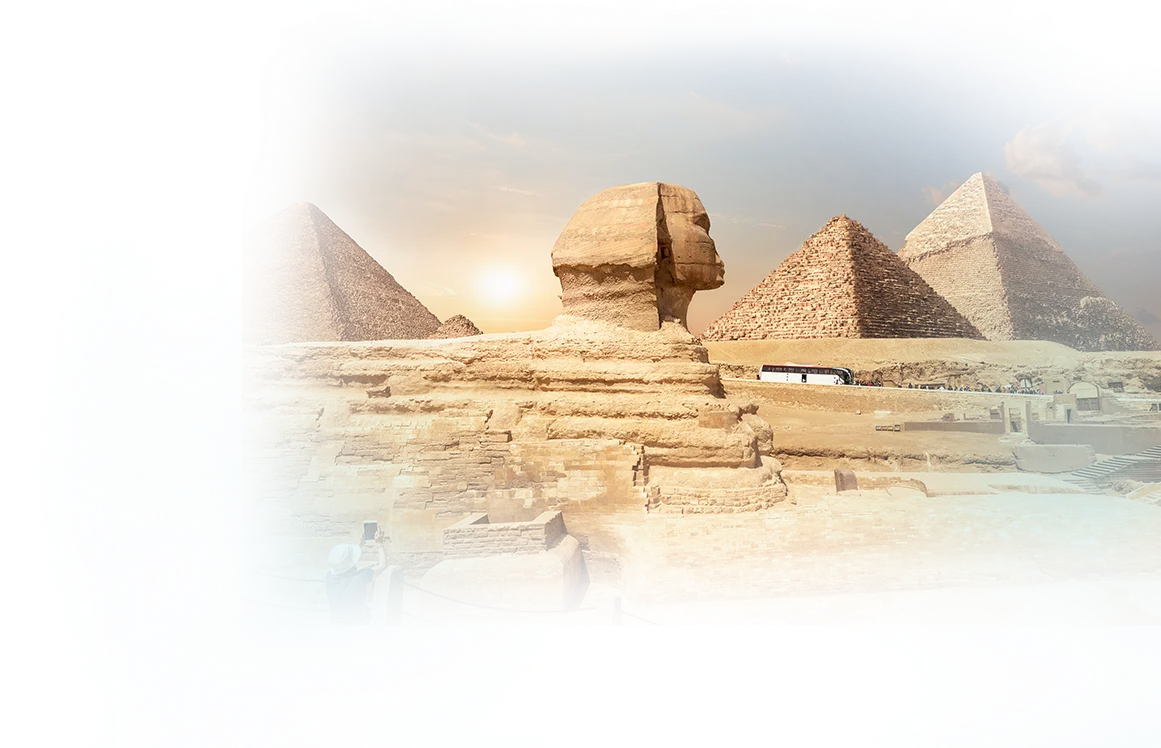
Egypt maintained advancing development and growth as a continuous culture for 30 centuries—from its unification around 3100 BCE to its conquest by Alexander the Great in 332 BCE. If you start with the year 2024 CE and go backwards this same frame of time puts you in the year 984 BCE. Even in the ancient world Egypt was ancient. Their traditional religious practices, evolving over time, had the longest continuous development of any other ancient system.
Emperors from all over the ancient world wanted to conquer Egypt for their riches, history, and cultural fame. When the Persians conquered them in 525 BCE, they were the largest nation in the entire Mediterranean world by far. The Persians mostly allowed the Egyptians to continue life as they always did with little change to their religious practices which continued in harmony into the Greek Hellenistic age and early Roman Occupancy.
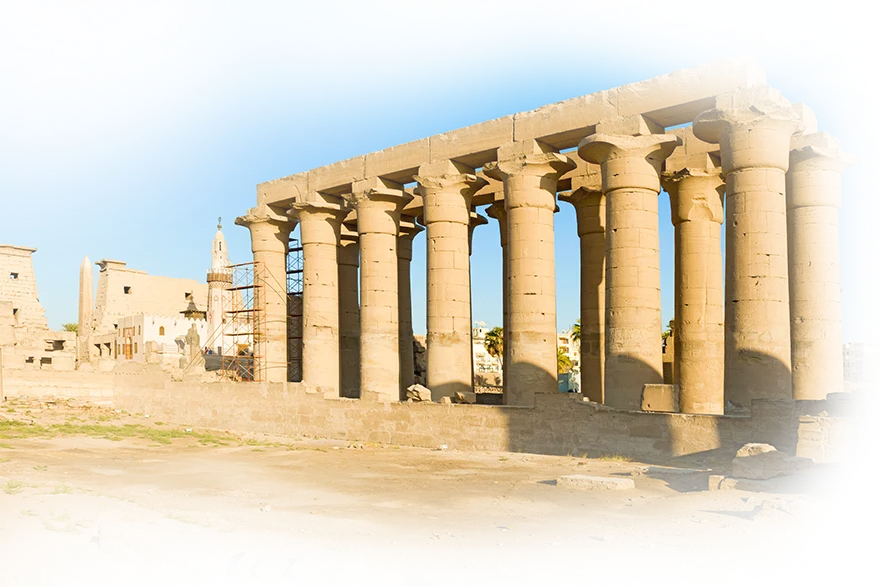
Upon the onset of Christianity and into 380 BCE, where Pagan persecution became predominant, Ancient Egyptian culture, practices and language went on a steady decline. The Greco/Roman influenced population were moving away from their syncretistic religious attitudes and towards conversion to the totalitarian ideologies of early Christianity. The fall of the western Roman Empire in the 5th century BCE further isolated the Egyptian Romans from Rome's earlier Egyptian culture and the success of Christianity led to a virtual abandonment of pharaonic traditions. With the disappearance of the Egyptian priests and priestesses who officiated at the temples, no-one could read the hieroglyphs of Pharaonic Egypt, and its temples were converted to churches or abandoned to the desert.
Early Greek Involvement with the Egyptian Mystery Schools and Wisdom
“The safest general characterization of the European philosophical tradition is that it consists of a series of footnotes to Plato. I do not mean the systematic scheme of thought which scholars have doubtfully extracted from his writings. I allude to the wealth of general ideas scattered through them”. - A.N Whitehead on Plato
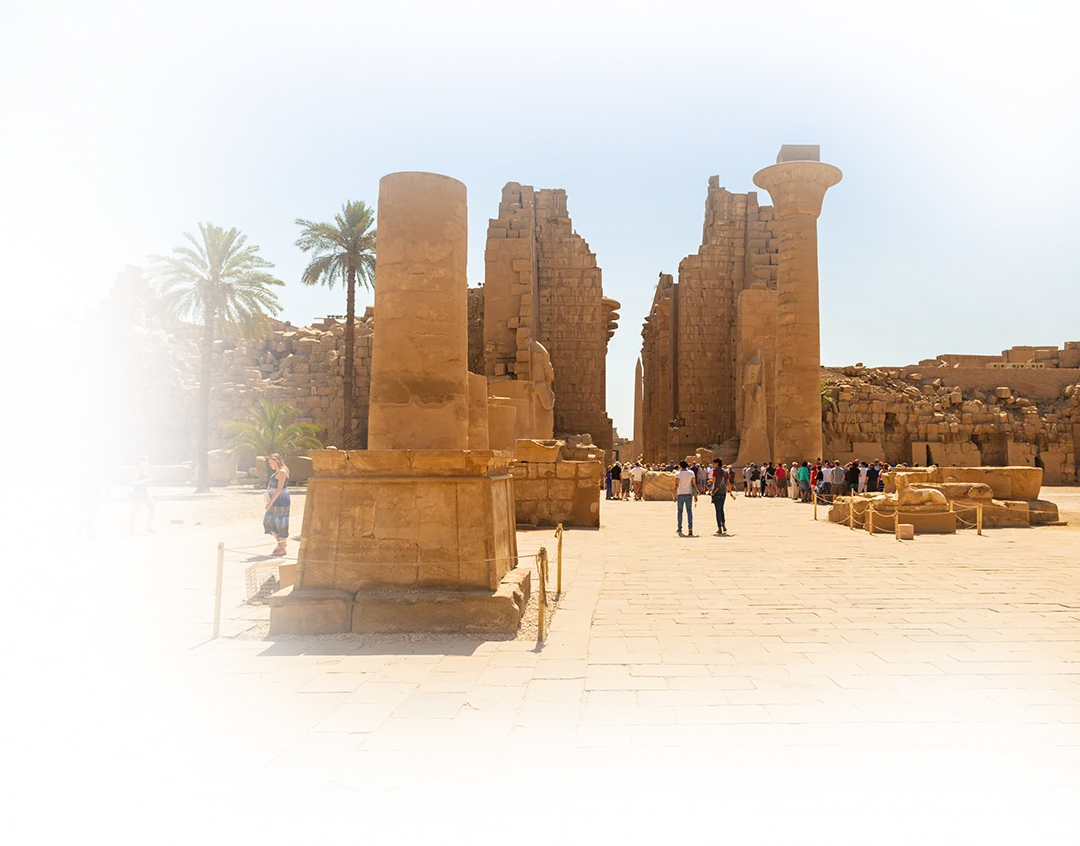
Most would agree that Greek culture and philosophy led to modern western philosophy and the foundation of the civilization we enjoy today. There are very few current philosophers in universities around the world that do not have extensive references to Plato and Aristotle. Both Platonism and Aristotlin thought are competing philosophies of Science today. More than half of the Nobel prize winning physicists in the last century are Platonic Realists. There are scholars today that agree with, and argue, that these ideas, this Greek vision of early philosophy as it evolved, began with the early relationship of Greece with Egypt. Greek thinkers traveled to learn directly in the mystery schools of the Egyptian temples. They viewed Egyptian wisdom in their time much the way we view the foundations of Greek philosophy today.
Isocrates (Greek historian from 436 BCE) stated that "all men agree the Egyptians are the healthiest and most long of life among men; and then for the soul they introduced philosophy’s training…" He declares that Greek writers traveled to Egypt seeking knowledge. He claimed that Pythagoras studied with the Egyptians saying he "was first to bring to the Greeks all philosophy." He also stated that Thales of Miletus insisted Pythagoras had to go to Egypt to study because the Egyptian priests were a veritable source of knowledge and wisdom, especially when it came to the natural sciences, medicine, and astronomy.
Plato was not only humbled by Egypt but was mentored there himself. He studied for 13 years under the Egyptian Horite priest Sechnuphis. Plato stated that the Egyptian Thoth "invented numbers and arithmetic… and, most important of all, letters.” He also said, “Compared with the Egyptians, the Greeks are childish mathematicians.” Aristotle attests to Egypt being the original land of wisdom, and stated, "Egyptians are reputed to be the oldest of nations, but they have always had laws and a political system."
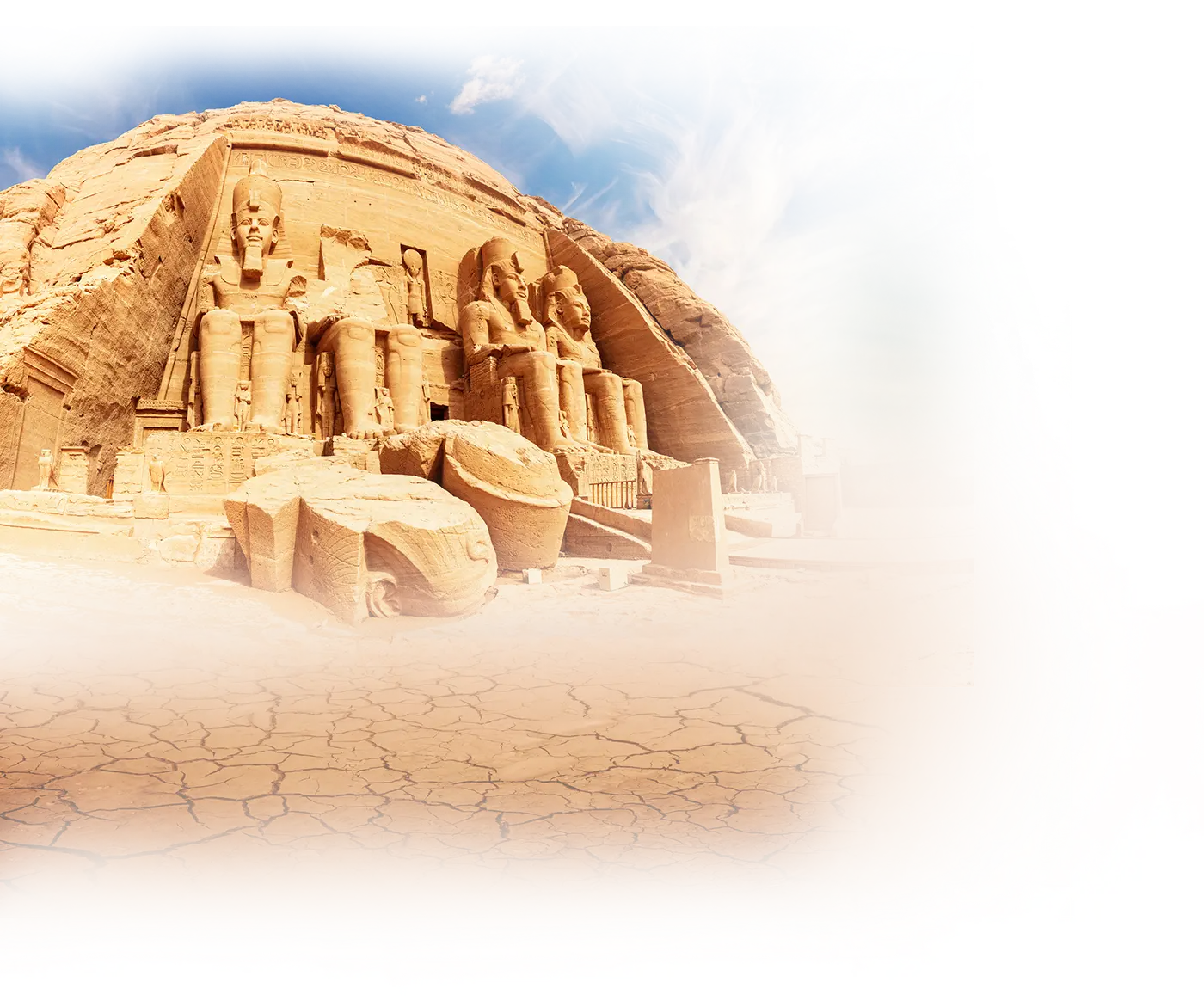
Where would we find these Egyptian foundations influencing the early Greek thinkers? The most astonishing can be found in the very foundation of Platonic thinking. See this statement by Plato, “We customarily hypothesize a single form in connection with each collection of many things to which we apply the same name.” This idea was termed “The One and the Many” by his student Aristotle. Plato’s theory was groundbreaking and established one of the major precepts of western philosophical thinking. In his system all things emanated from a single source through meta-forms where all other conditions, thoughts, ideas, and even the physical universe drew. This idea shaped the thinking of the most predominant Greek and later Hellenistic philosophical systems.
The French Egyptologist Jean Yoyotte stated “The sages of Egypt had affirmed the four elements, the underlying unity of the One and the Many, as well as the role of divine intelligence in the cosmos, long before the birth of the first Greek philosopher. Thus, differing modes of expression aside, it is perfectly conceivable that Hellenic thinkers imported and then adapted Egyptian ideas for their own purposes.”
It was not uncommon for early cultures to borrow from Egyptian wisdom. This can also be found in the Bible, in the Book of Proverbs, the earliest of the Hebrew texts, written around 700 BCE. Here they borrowed significantly from the Egyptian “Instruction of Amenemope” - 1300–1075 BCE. Here is one example:
“Incline thine ear, and hear the words of the wise, And apply thine heart to my doctrine; For it is pleasant if thou keep them in thy belly, that they may be established together upon thy lips." Hebrew Proverbs 22:17–18
"Give thine ear, and hear what I say, And apply thine heart to apprehend; It is good for thee to place them in thine heart, let them rest in the casket of thy belly; That they may act as a peg upon thy tongue." Amenemope, ch. 1
“The Hebrew author apparently used this work as a model—the Egyptian work comprises 30 chapters, and the Hebrew text refers to its “thirty sayings”. - From Britannica
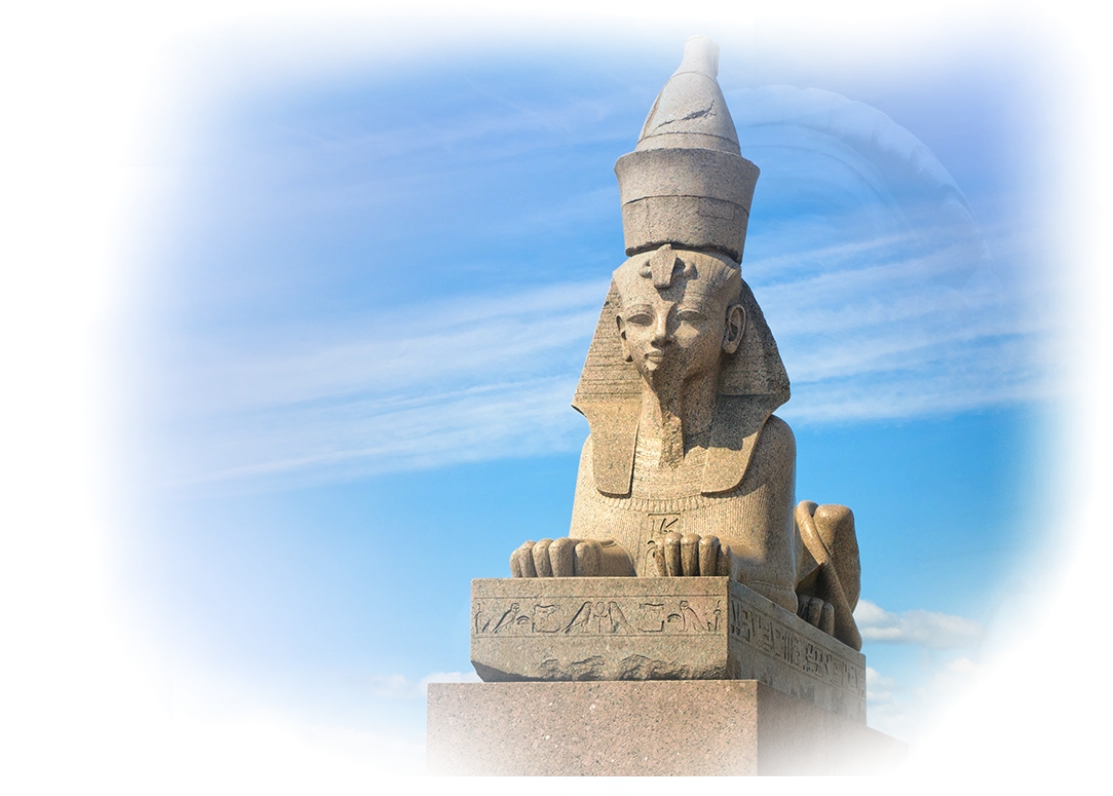
Here you see the oldest Biblical writings being drawn directly from Egyptian Wisdom during the same period that Homer was authoring the Iliad and the Greek city states began rapid development. The admiration of Egyptian Wisdom for the Greeks, if we are to take the examples in this essay seriously, must have predated even their use of written language in the early proto Greek city states.
Many historians would like to say that the ideas of Plato and the Greek thinkers were developed in a bubble and had nothing to do with their “lesser” neighbors. There has been much debate about the origin of Greek ideas amongst academics but the consensus is changing, more and more agree that Greece saw Egypt as their superior and sought their teachings and education.
A brief showing of the incorporation of Ancient Egyptian Wisdom into the Greco/Egyptian World
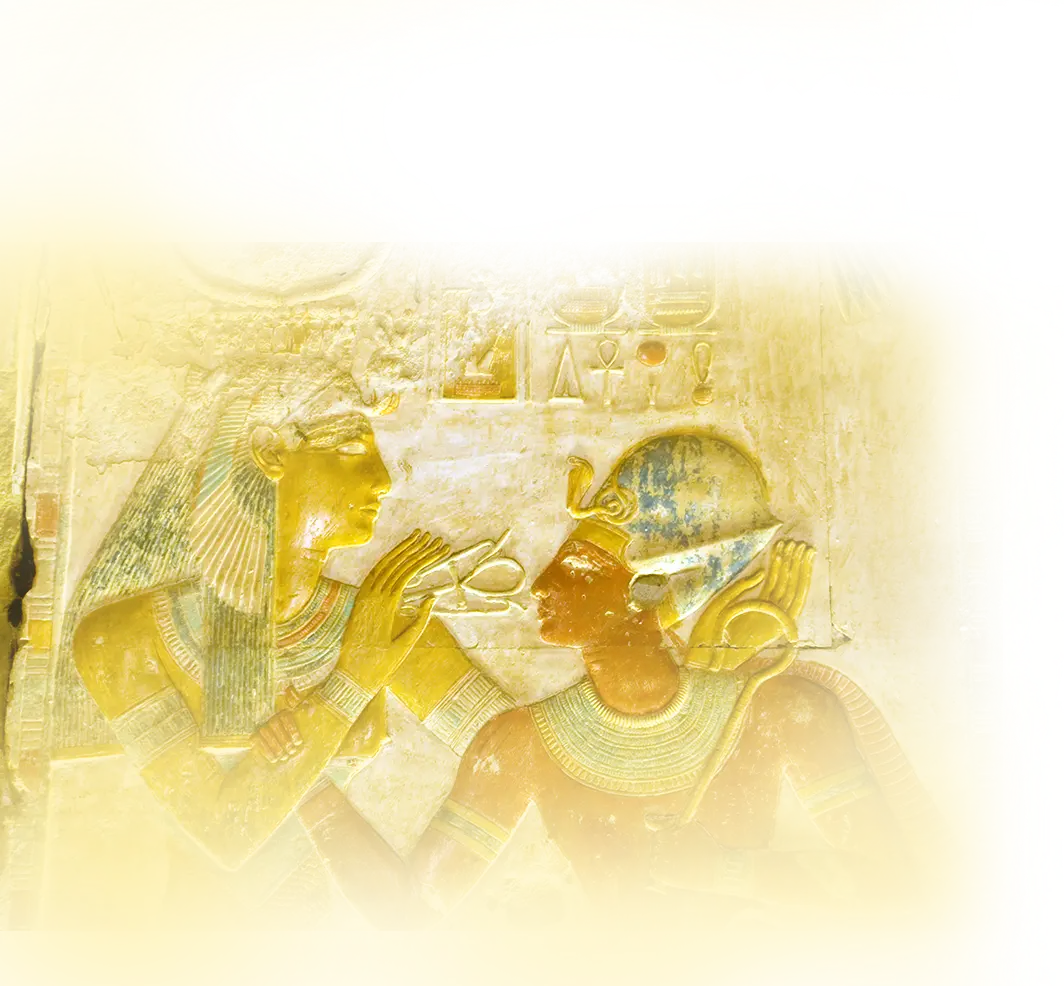
There are ample others showing the Egyptian wisdom as the source of the world's wisdom, many you would be surprised with. Ones you are familiar with yourself. Here is just one example of an Egyptian precept that was borrowed by the Greeks and early Christians alike.
“The body is the house of God. That is why it is said, "Man know yourself."
“If you would know yourself, take yourself as starting point and go back to the source.”
“Know the world in yourself. Never look for yourself in the world, for this would be to project your illusion.”
Karnak Temple – (Egyptian) – 1700 B.C.E. - 305 B.C.E
“Know thyself, and thou shalt know the universe and God.”
Temple of Apollo at Delphi (Greek Pagan) – 2nd Century C.E.
“Or do you not know that your body is a temple of the Holy Spirit within you, whom you have from God?”
1st Corinthians 6:19-20 – (Greek Christian) 53 C.E.
